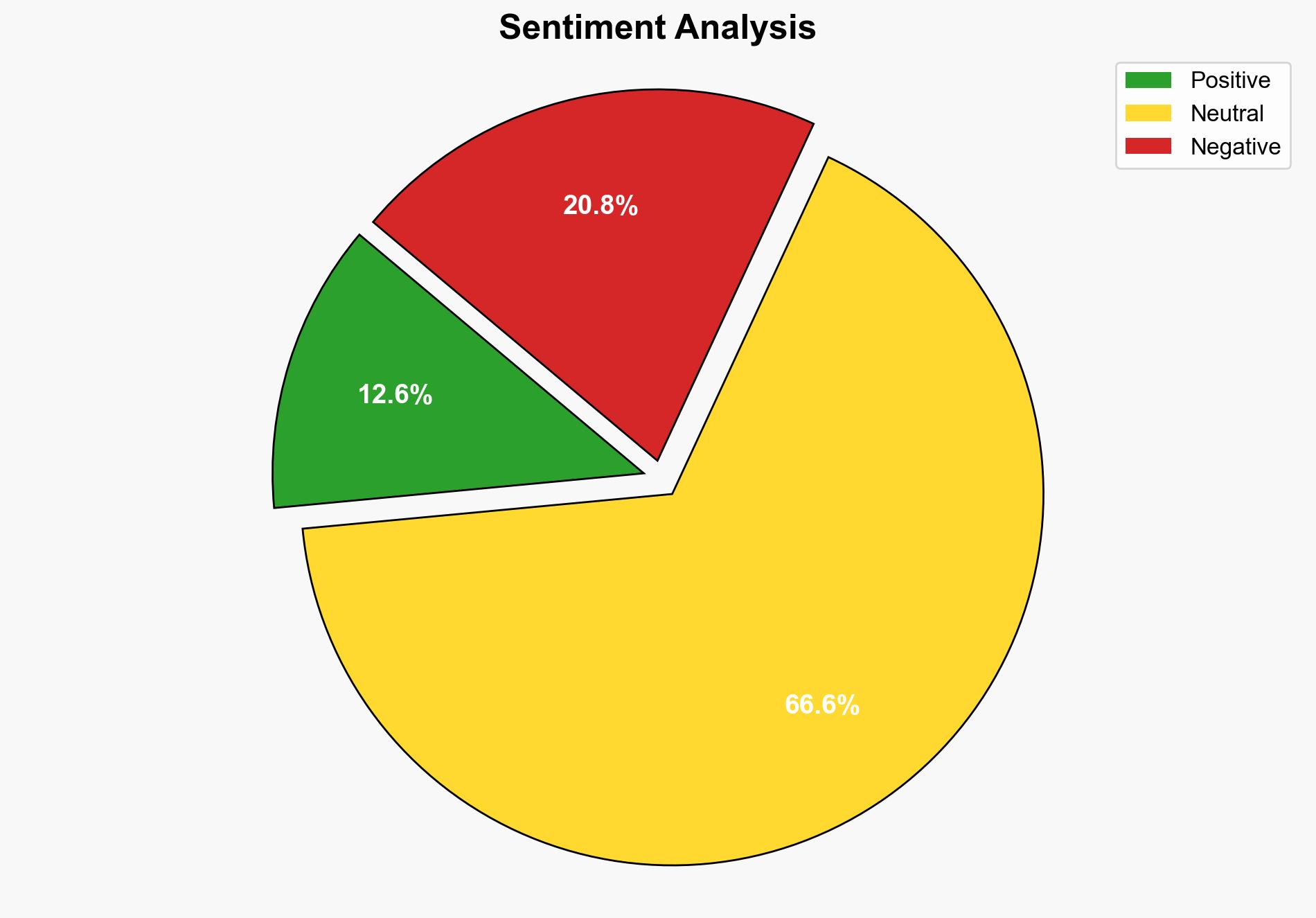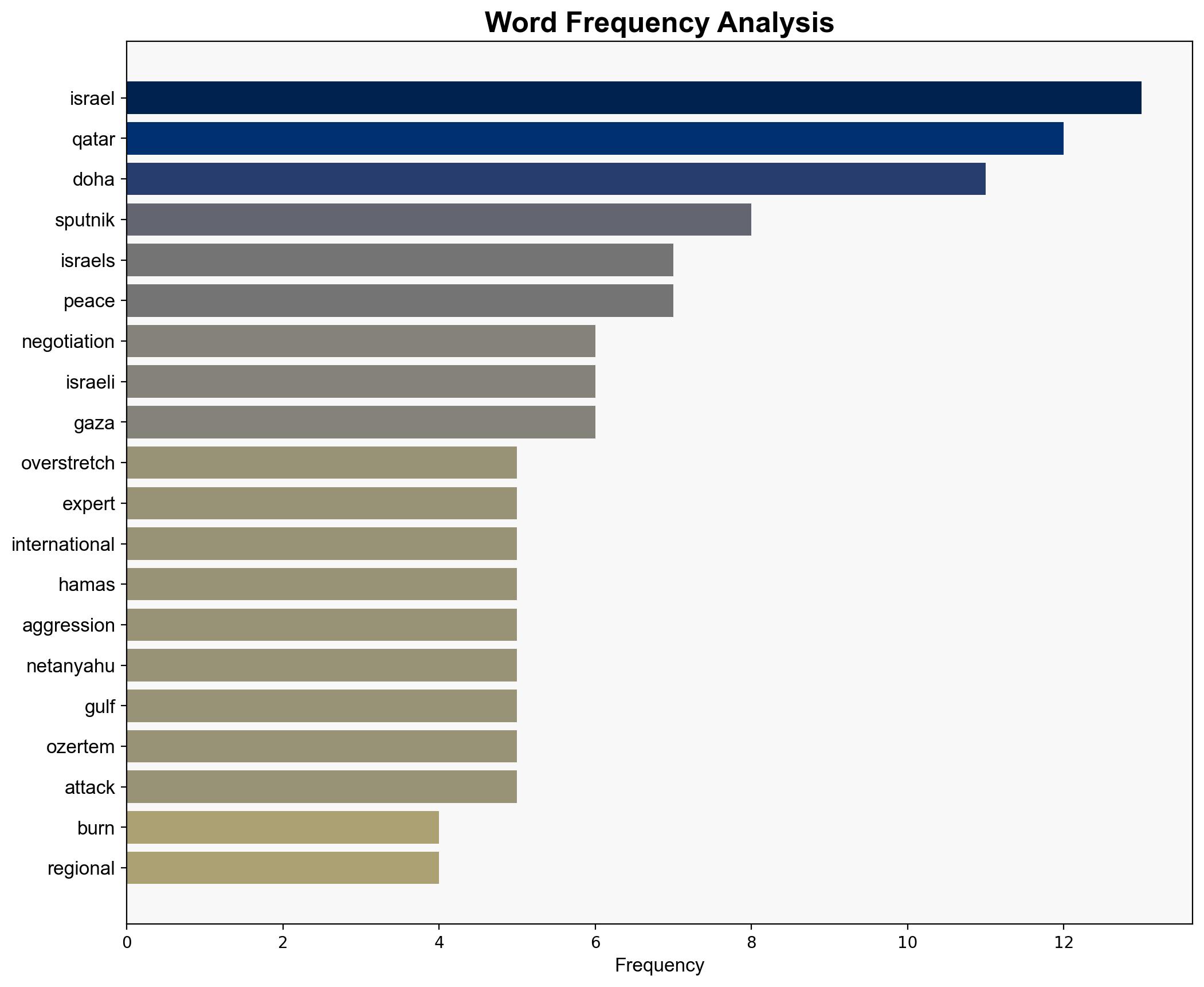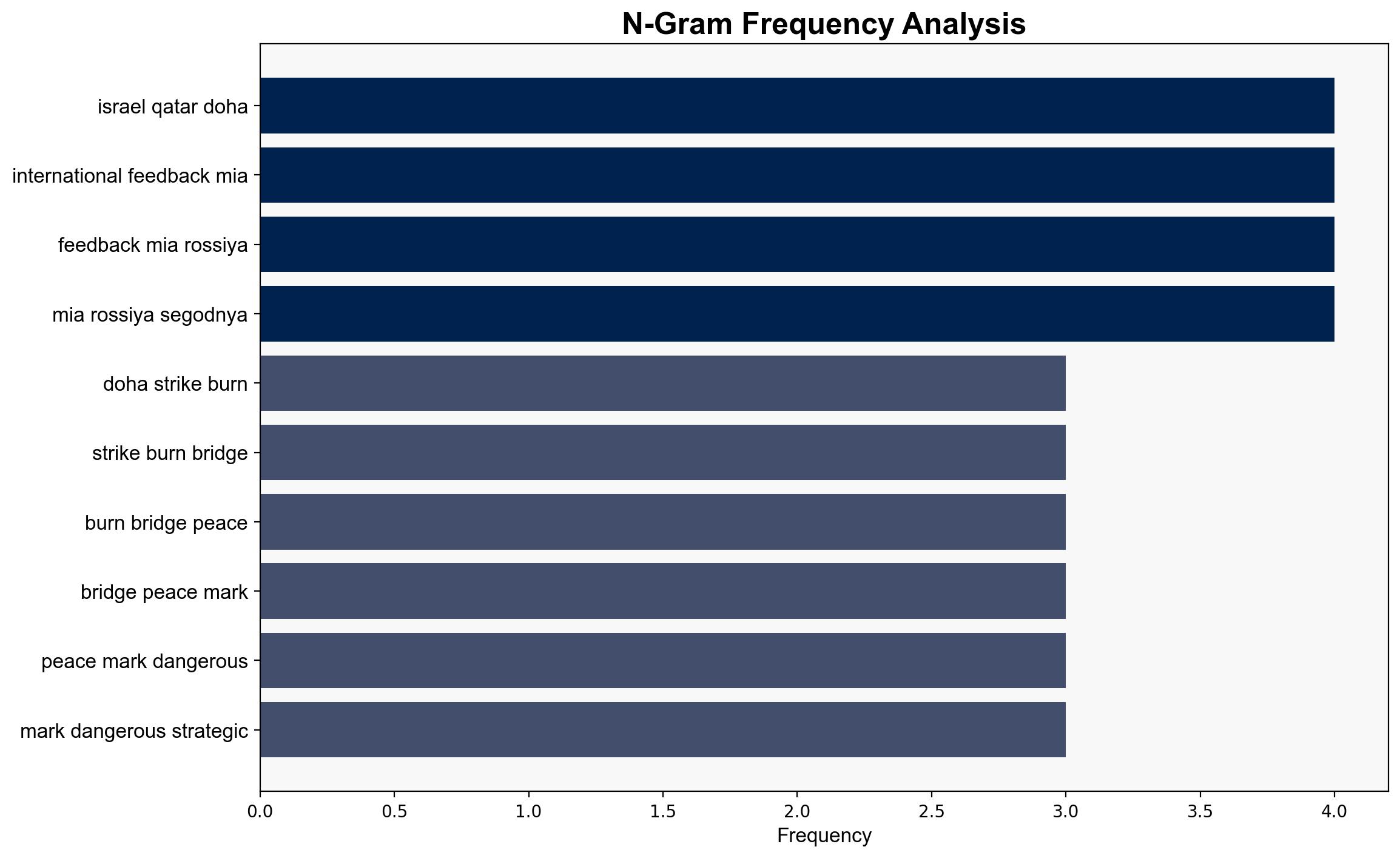Israels Doha Strike Burns Bridges for Peace Marks Dangerous Strategic Overstretch Experts – Sputnikglobe.com
Published on: 2025-09-10
Intelligence Report: Israels Doha Strike Burns Bridges for Peace Marks Dangerous Strategic Overstretch Experts – Sputnikglobe.com
1. BLUF (Bottom Line Up Front)
The strategic judgment indicates a high likelihood that Israel’s military strike in Doha represents a significant diplomatic misstep, potentially isolating Israel further in the region. The most supported hypothesis suggests that this action will lead to increased regional tensions and a potential realignment of alliances against Israel. Confidence in this assessment is moderate, given the complexity of regional dynamics and the potential for unforeseen diplomatic maneuvers. Recommended action includes diplomatic engagement to mitigate fallout and explore alternative peace negotiation channels.
2. Competing Hypotheses
1. **Hypothesis A**: Israel’s strike in Doha is a calculated move to disrupt Hamas’ operations and assert military dominance, with the expectation that regional powers will eventually acquiesce to Israel’s strategic objectives.
2. **Hypothesis B**: The strike is a strategic overreach that will undermine Israel’s diplomatic relations, particularly with Gulf states, leading to increased isolation and the formation of a regional bloc opposed to Israeli policies.
Using ACH 2.0, Hypothesis B is better supported due to the immediate negative reactions from regional actors and the historical context of Israel’s strained relations with its neighbors. Hypothesis A lacks support as it underestimates the diplomatic repercussions and overestimates Israel’s ability to manage regional backlash.
3. Key Assumptions and Red Flags
– **Assumptions**: Hypothesis A assumes regional powers prioritize stability over solidarity with Qatar, while Hypothesis B assumes regional actors will align against perceived aggression.
– **Red Flags**: The source’s potential bias, given its origin, may skew the narrative towards emphasizing negative outcomes for Israel. Additionally, the lack of direct statements from key regional leaders could indicate incomplete intelligence.
– **Blind Spots**: The potential for behind-the-scenes diplomatic negotiations or third-party mediation efforts is not addressed.
4. Implications and Strategic Risks
The strike could catalyze a series of escalatory actions, including increased support for Hamas from sympathetic states, heightened military readiness among Gulf Cooperation Council (GCC) countries, and potential cyber retaliation against Israeli interests. Economically, it may affect trade relations and investment flows in the region. Geopolitically, it risks solidifying an anti-Israel bloc, complicating future peace negotiations.
5. Recommendations and Outlook
- Engage in immediate diplomatic outreach to key regional actors to clarify intentions and reduce tensions.
- Explore alternative negotiation frameworks that include neutral mediators to re-establish dialogue with Qatar.
- Scenario Projections:
- **Best Case**: Diplomatic efforts succeed, leading to a de-escalation and renewed peace talks.
- **Worst Case**: Regional tensions escalate into broader military confrontations, severely isolating Israel.
- **Most Likely**: Continued diplomatic strain with periodic escalations, requiring ongoing crisis management.
6. Key Individuals and Entities
– Benjamin Netanyahu
– Mehran Kamrava
– Hasan Selim Ozertem
7. Thematic Tags
national security threats, regional focus, diplomatic relations, military strategy





